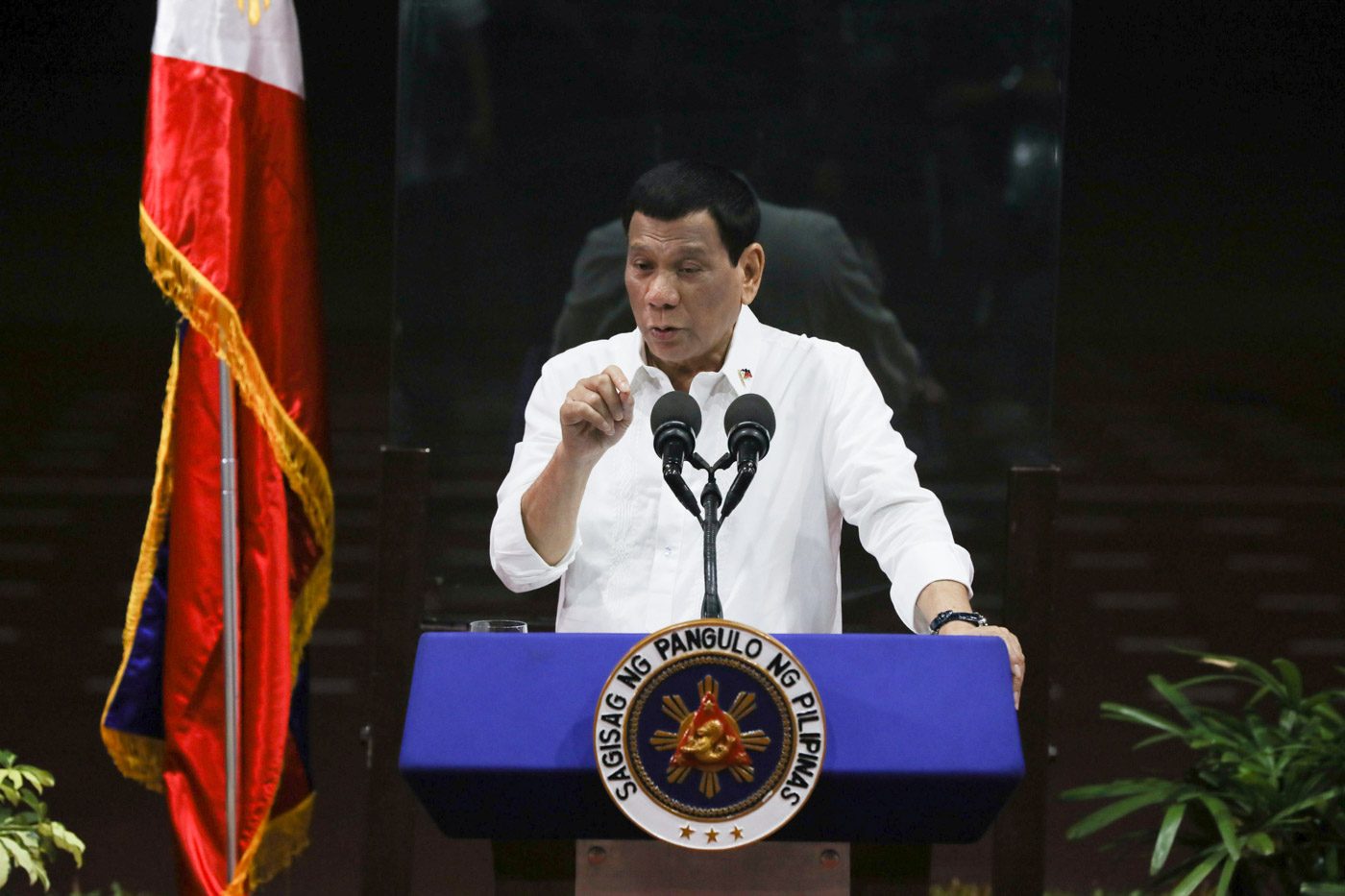SUMMARY
This is AI generated summarization, which may have errors. For context, always refer to the full article.

MANILA, Philippines – A political scientist on Friday, July 19, said that President Rodrigo Duterte’s populist-authoritarian rule is showing in his simplistic approaches to problems and overall weakening of political and economic institutions.
Temario Rivera from the Center of People’s Empowerment in Governance (CenPEG) said that perceived social crisis, demonizing traditional elites and existing institutions deemed ineffective, and presenting oneself as a savior of the country’s ill all contribute to the rise of leaders like President Rodrigo Duterte.
“Perhaps it’s also the electoral mandate that makes it easier for them to become authoritarian leaders,” Rivera said during the 11th State of the Presidency forum held at the University of the Philippines Diliman.
“If the basis of your popular support is the ability to convince the people to support, kailangan bigyan mo din sila ng idea na madaling masolusyonan iyong mga matitinding problema na iyan (If the basis of your popular support is the ability to convince the people to support, you need to give them an idea that these complex problems have easy solutions),” Rivera added.
Duterte’s 3 years in power has been marred with several controversies, including human rights violations, shrinking of civic space, and the reported deterioration of democracy. (READ: 2018: Democracy in decline)
While he tried to address the country’s drug problem and corruption, Duterte and his supporters also demonized ruling elites and discredited institutions of accountability such as the Commission on Human Rights, the Supreme Court and Commission on Audit.
This developed a culture of violence rejecting human rights and norms of civilized conduct, according to Rivera.
The drug war campaign in itself resulted in large-scale abuses – with more than 5,000 killed in anti-drug police operations while human rights groups peg the number to reach more than 20,000 to include victims of vigilante-style killings. (READ: The Impunity Series)
Duterte, however, still enjoyed high popularity ratings. In the Social Weather Stations survey conducted from June 22-26, 2019, the President tallied a net satisfaction rating of +68, classified as “very good.” (READ: At midterm mark, Duterte scores his highest satisfaction rating)
Duterte is set to deliver his 4th State of the Nation Address (SONA) on Monday, July 22. Groups are expected to counter the annual speech outside the Batasang Pambansa and elsewhere around the world through protest actions against Duterte’s policies deemed to be anti-people. (READ: People’s SONA 2019 to unite for sovereignty, democracy vs Duterte) – Rappler.com
Dana Cruz is a Rappler intern from the University of the Philippines-Diliman.
For highlights of President Duterte’s 4th SONA, check out our live blog.
For related stories, visit Rappler’s 2019 State of the Nation Address page.
Rappler takes a deeper look at the first half of Rodrigo Duterte’s presidency – it’s highs and lows, its achievements and shortcomings:
Duterte Year 3: The Halfway Mark
Add a comment
How does this make you feel?
There are no comments yet. Add your comment to start the conversation.